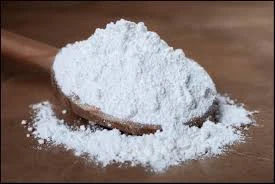
organic fertilizer
The Benefits of Organic Fertilizer for Sustainable Agriculture
In recent years, the agricultural industry has witnessed a significant shift towards sustainable practices, and one of the most impactful changes has been the increasing use of organic fertilizers. As the world grapples with climate change, soil degradation, and food security, organic fertilizers have emerged as a vital solution for farmers seeking to enhance productivity while protecting the environment.
Organic fertilizer is derived from natural sources such as plant materials, animal manure, and compost. Unlike synthetic fertilizers, which are chemically manufactured, organic fertilizers release nutrients slowly, providing a more balanced and sustained nutrient supply to plants. This slow-release mechanism helps prevent nutrient leaching, thereby safeguarding groundwater quality and reducing the risk of water pollution—issues often exacerbated by the overuse of chemical fertilizers.
One of the primary benefits of organic fertilizers is their ability to improve soil health. Healthy soil is rich in organic matter, which enhances its structure, aeration, and water retention capabilities. Organic fertilizers contribute to soil structure by increasing the amount of organic matter, resulting in a more robust soil ecosystem. This, in turn, fosters a thriving community of microorganisms, earthworms, and other soil-dwelling entities that play a crucial role in nutrient cycling and organic matter decomposition.
Furthermore, organic fertilizers help in maintaining biodiversity, a vital component of a resilient agricultural system. Conventional fertilizers can harm beneficial organisms in the soil, leading to a disrupted ecosystem. By contrast, organic fertilizers promote the growth of beneficial bacteria and fungi that enhance nutrient uptake for plants. This holistic approach not only supports healthier crops but also encourages pest resilience, reducing the need for chemical pesticides.
organic fertilizer

Another notable advantage of using organic fertilizers is their role in carbon sequestration. The application of organic materials to the soil helps to capture atmospheric carbon dioxide and store it as organic carbon in the soil. This process is critical in mitigating climate change effects, as healthy soils can act as significant carbon sinks. By choosing organic fertilizers, farmers can actively contribute to reducing greenhouse gases in the atmosphere while simultaneously improving the productivity and sustainability of their farming practices.
The economic implications of organic fertilizers are also compelling. While the initial cost of converting to organic farming methods might be higher, the long-term benefits often outweigh these expenses. Healthier soils lead to increased yields over time, reducing the dependency on costly synthetic inputs. Additionally, organic products often command higher prices in the market, providing farmers with better profitability. As consumers increasingly demand organic produce for its perceived health benefits, transitioning to organic fertilizers can create new market opportunities for farmers.
Despite these advantages, some challenges remain in adopting organic fertilizers. Farmers might encounter issues related to the availability and consistency of organic inputs, which can vary based on region and season. However, these challenges can often be mitigated through strategic planning and partnerships with local suppliers or cooperatives dedicated to sustainable practices.
In conclusion, organic fertilizers present a promising alternative to synthetic fertilizers, holding the potential to enhance soil health, promote biodiversity, and contribute to climate change mitigation while ensuring economic viability for farmers. As the agricultural sector continues to evolve, embracing organic fertilizers is not just an environmentally friendly choice; it is a necessary step towards a sustainable and resilient food system. By prioritizing organic methods, we can foster a healthier planet and secure a sustainable future for generations to come. In doing so, both farmers and consumers can play an integral role in shaping an agricultural landscape that values environmental stewardship and sustainability.
-
Pure Sodium Dichloroisocyanurate Dihydrate | Powerful DisinfectantNewsAug.29,2025
-
Industrial Chemicals: Quality & Purity for Every IndustryNewsAug.28,2025
-
Nitrile Rubber Honoring Strict Production StandardsNewsAug.22,2025
-
Aspartame Ingredients Honoring Food Safety ValuesNewsAug.22,2025
-
Fertilizer for Balanced Plant NutritionNewsAug.22,2025
-
Cyanide Gold Processing with High Purity AdditivesNewsAug.22,2025
-
Formic Acid in Textile Dyeing ApplicationsNewsAug.22,2025
Hebei Tenger Chemical Technology Co., Ltd. focuses on the chemical industry and is committed to the export service of chemical raw materials.
-

view more DiethanolisopropanolamineIn the ever-growing field of chemical solutions, diethanolisopropanolamine (DEIPA) stands out as a versatile and important compound. Due to its unique chemical structure and properties, DEIPA is of interest to various industries including construction, personal care, and agriculture. -

view more TriisopropanolamineTriisopropanolamine (TIPA) alkanol amine substance, is a kind of alcohol amine compound with amino and alcohol hydroxyl, and because of its molecules contains both amino and hydroxyl. -

view more Tetramethyl Thiuram DisulfideTetramethyl thiuram disulfide, also known as TMTD, is a white to light-yellow powder with a distinct sulfur-like odor. It is soluble in organic solvents such as benzene, acetone, and ethyl acetate, making it highly versatile for use in different formulations. TMTD is known for its excellent vulcanization acceleration properties, which makes it a key ingredient in the production of rubber products. Additionally, it acts as an effective fungicide and bactericide, making it valuable in agricultural applications. Its high purity and stability ensure consistent performance, making it a preferred choice for manufacturers across various industries.





